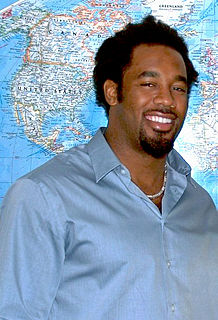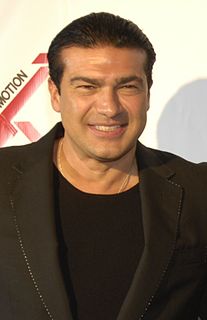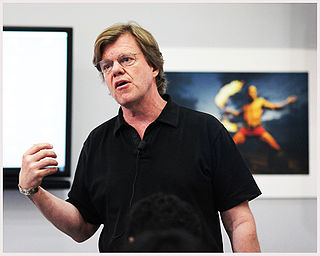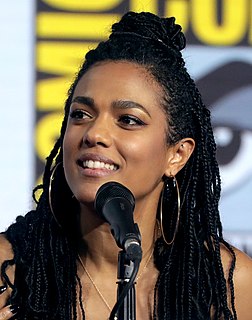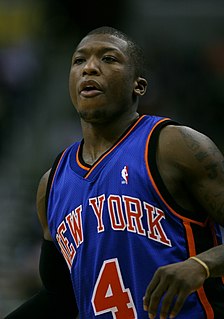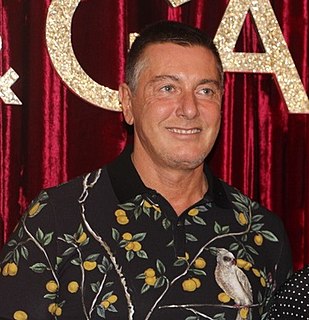A Quote by Stephen King
There is a story in the book Night Shift, called 'The Mangler,' about a laundry machine that takes on a sort of malignant life. I worked in a laundry for about a year and a half after I got out of college. It was the only job I could find to support my wife and our first child. There was a fellow there that had no hands or forearms. He simply had hooks. This is one of the things that they don't tell you about when you become management. You have to wear a tie. It was this fellow's tie that did him in.
Related Quotes
The bow tie started off with one of my friends, Kunta Littlejohn. He said if you want to be anybody, you've got to rock the bow tie. I dismissed it at first, but later he told me he had non-Hodgkin's lymphoma, so I decided to wear the bow tie to support him. And as he got better, I came to learn the power of the bow tie.
I went to University after my A levels and did a degree in performing arts. It was only when I got there that I realized there were stage schools out there, and you had your union and your contacts and The Spotlight and this whole world of the acting industry that I had no idea about. So when I graduated, I took a year out and just thought really hard about whether it was something I knew enough about, and whether it was the career I could dedicate the rest of my wacky life to.
In my whole life, I've worn black tie three times. I can't tie the knot myself. Once, at the premiere of the opera, I got to La Scala before Domenico, and I was hiding in the corner until he arrived, and I said, 'Quick, you have to tie my tie, please!' Otherwise, I'll wear a tuxedo jacket with jeans and my bling-bling cross.
In 1990 I did a story with Helena Christensen about a woman who lives in a trailer in the middle of the desert and finds a little crushed UFO with a martian who has survived the crash. She takes him home, and they fall in love. Later he has to meet with his fellow martians who have arrived to rescue him. It's a sad ending. This was my first truly narrative story and apparently the first narrative story in fashion photography.
About 10 minutes [into the dinner] my sister texted me and said, "Maria, I just wanted to let you know that you're on TV live. You're front and center." I thought, 'Oh God, I'm right behind Donald Trump and in the camera shot. After that I stopped moving. I just sat there. It was funny. I was delighted that people noticed my white gloves. It was a white tie dinner, for the dais you had to be in white tie. If I can't channel my best Sophia Loren glamour for a white tie affair, when can I? I thought it was an excellent opportunity to wear the white gloves.
I had in effect been thrown out of graduate school because I was a lousy graduate student, and I had to find a job, and I took the first job that came along. It happened to be a management trainee job in a life insurance company, and I just stayed. It was always, mainly, the idea was that I would support myself as a writer, and I knew I would have to have some sort of work, and it didn't make a whole lot of difference to me what it was. I mean, I could have been a paper hanger or something for that matter.
I used to work for a non-profit organization where I worked as a mentor and a counselor to first-generation college student and they kept asking me 'What can I read to try to know what I'm about to be in for,' and while I did have some good suggestions, I figured... I don't know that that book is out there, and that's sort of why I had to write it.
There's been more written about Lincoln than movies made about him or television portraying him. He's kind of a stranger to our industry, to this medium. You have to go back to the 1930s to find a movie that's just about Abraham Lincoln. I just found that my fascination with Lincoln, which started as a child, got to the point where after reading so much about him I thought there was a chance to tell a segment of his life to to moviegoers.
The format of the book was the idea of my wonderful editor, Stephen Segal. Stephen and I had worked together before, on projects for the Interstitial Arts Foundation, and when he got the idea for an accordion-style book, he called and asked if I could write the story for it. I told him that I would love to try! And I knew it had to be a love story, because that's the sort of story you really want to hear from both perspectives. I mean, imagine if Pride and Prejudice were told from Darcy's perspective as well as Elizabeth's. It would be quite a different story!

